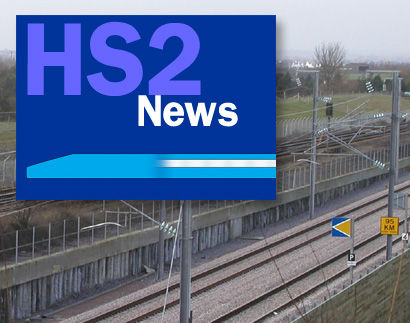A SENIOR civil servant from the Department for Transport has clashed with MPs in a discussion of HS2, as opponents continue to argue that the scheme is unnecessary and too expensive.
The Public Accounts Committee of the House of Commons was taking evidence from DfT permanent secretary Philip Rutnam, who said an increase to £42.6 billion for both Phases, which was revealed last week and includes a contingency budget of some £14 billion, was partly caused by the increased length of route in tunnels.
The additional underground sections, which range from a new tunnel under west London in the Northolt area to changes at Sheffield, have been planned in response to opposition and other feedback from those areas.
But MPs on the Committee remained critical. The member for Grimsby, Austin Mitchell, described the cost estimates as 'shaky and flimsy', while the Committee's chairman Margaret Hodge described the timetable, which envisages Phase 1 between London and Birmingham opening by 2026, as 'complete madness'.
She said: "When you get an authorisation for a project, you put a number by it. You are sitting there as a minister: you say 'This is what it's going to cost me.' "
Mr Rutnam said: "We are confident that timetable can be achieved. It's a very challenging timetable and we are confident it can be achieved." He added that the estimates became 'more reliable' as more work was done.
When transport secretary Patrick McLoughlin revealed the new costs in the Commons last week, he insisted that a High Speed network is essential, saying that "even on moderate forecasts, the West Coast Main Line – the nation’s key rail corridor – will be full by the mid 2020s. Upgrades do not provide the extra capacity that we need. The choice is between a new High Speed line and a new conventional railway. The significant additional benefits make high speed the right answer."
Meanwhile new research from the pro-HS2 group Greengauge 21 claims that HS2 will create an estimated 890,000 job years. It's the first third-party assessment of the direct employment implications of the HS2 project.
It includes those who would be employed directly by HS2 Ltd, by its contractors and their supply chains.
Douglas McCormick, who is managing director of Atkins’ Rail Business UK said: “Investment in High Speed rail doesn’t just ensure that the UK has the physical infrastructure needed to compete in the 21st Century, but also that our economy will be strengthened through job growth in the long term.”
Greengauge21 said employment on the project would be maintained at least at 20,000 full time jobs a year over a 13 year period, and increase up to a maximum of 50,000 jobs at any one time.
“This shows the direct value of the project to the British labour market”, said Greengauge 21 director Jim Steer.
“These numbers should not be confused with other employment effects, for instance, from regeneration impacts around HS2 stations, which are not included in this assessment."


